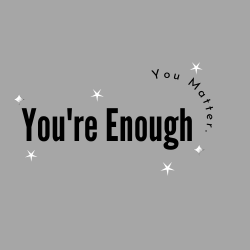Due to the advancements in technology overtime, it has now become the new norm to spend a huge amount of time on social media. Although social media comes with many positives including communicating and interacting with many people around the world. There is a lot of negatives for example, seeing people live a ‘perfect’ life style adds pressure to the younger generation leading towards the rise in mental illness in that age category such as depression, anxiety, and eating disorder.
There is a high demand of pressure on teenagers on social media because they believe they have to be available all hours of the day as they have a fear of missing out. Therefore, young people are experiencing depression, anxiety, and sleep deprivation in order to feel connected to everyone and keep up with the latest trends whether that be fashion, or slang terms they believe they constantly need to know what’s going on. This creation of FOMO (Fear Of Missing Out) heavily drives teenagers to obsessively check their phones to see what their friends are up to, this also causes teenagers to have fear and anxiety feeling bad if they do not respond to a message quickly, hence the lack of sleep they’re experiencing.
It is hard for teenagers to find the separation of perception from reality. Influencers they look up to portray a heavily edited lifestyle, altering the way they look, and constantly implying that they have the best life can cause the younger generation to believe they should inspire to look and act like them, “People may be comparing themselves to the edited photos they see on social media and perceive their appearance to be inferior,” when in reality its not all what it seems. The social media app Instagram, is known for taking a toll on peoples mental health, this is due to the fact that it allows people to post heavily edited photos of themselves. You as an individual have the power to decide what you post, you can create a fake perception that you have the ‘best life’. This affects those mentally because it can cause those to feel as though there life isn’t good enough, creating a toxic environment causing those to feel depressed seeing others have their life ‘figured out’ or there friends hanging out without them. There is also the obsession of getting as many likes as possible on an Instagram post because it is assumed that the more likes you get on Instagram the more popular you are, when in reality, the key is remembering that getting a thousand ‘likes’ does not make you a better person.
Eating disorders are defiantly on the rise due to the ‘diet culture’ that has been created. Particularly on TikTok there has been a rise of videos which include the promotion of ‘What I Eat In A Day.’ These videos are a cause for concern because there is a high amount of these videos produced, TikTok Promotes A Dangerous Diet Culture In Many Videos (delish.com) This is an alarming amount of videos that lean towards harmful dieting trends and glorying the idea of eating little amount of calories to fuel your body. There is a trend where these videos usually become more frequent in the new year and towards summer time. From my own research, they use ‘motivational sentences’ like ‘imagine what you could look like in the summer’, ‘New year, new you.’ This causes people to get in a downwards spiral of believing their body isn’t good enough and they muse reach this goal of abs by the summer. They start to obsess over what they’re eating and copy these bad habits leading towards an eating disorder and body dysmorphia.

Image from Pexels
Using Pew Research centre research was gather that founded:
- Three most popular social media platforms among teens are YouTube (used by 85% of teens, according to Pew research centre 2018 survey), Instagram (72%) and SnapChat (69%). The percentage of teens who report using Facebook declined to 51% in 2018 from 71%, according to a 2014-2015 teen survey.
- One in six teenagers have experienced at least one of six different forms of abusive behaviour online,
- 20% of people who have at least one social media account feel they have to check them at least once every three hours to avoid feeling anxious.
These facts and figures collected provide clear reasoning as to why we are doing this campaign. We want to raise more awareness into the problems of social media and the damage it is causing.
The reasoning to catering our research and awareness towards the younger generation is because Gen Z’s were born in the hyperinflation of social media. We want to teach them that although social media has its positives it does come with its negatives. They need to understand that you do not need to change yourself to reach an ‘unrealistic lifestyle’ and if you’re feeling pressured or triggered by things you’re seeing there are ways to avoid this. For example, you can click not interested on any video on TikTok and they wont show you videos like that. We also want to educate and provide them with techniques of self care and provides solutions supplying them with helpful recourses into feeling better. Most importantly we want them to know they’re not alone. That the way they feel is valid, and the best way to overcome problems is to speak about them. Providing them and others around them with these resources and education, we hope to target our audience over a widespread and raise awareness.

Image from Pexels

